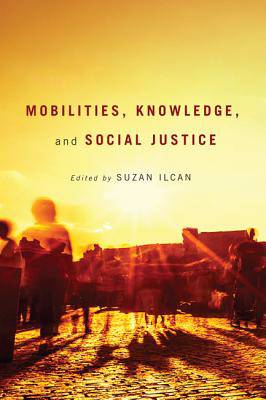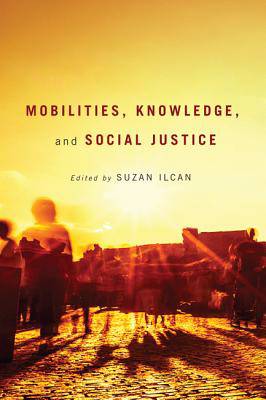
Je cadeautjes zeker op tijd in huis hebben voor de feestdagen? Kom langs in onze winkels en vind het perfecte geschenk!
- Afhalen na 1 uur in een winkel met voorraad
- Gratis thuislevering in België vanaf € 30
- Ruim aanbod met 7 miljoen producten
Je cadeautjes zeker op tijd in huis hebben voor de feestdagen? Kom langs in onze winkels en vind het perfecte geschenk!
- Afhalen na 1 uur in een winkel met voorraad
- Gratis thuislevering in België vanaf € 30
- Ruim aanbod met 7 miljoen producten
Zoeken
€ 62,45
+ 124 punten
Uitvoering
Omschrijving
The mobility of people, objects, information, ideas, services, and capital has reached levels unprecedented in human history. Such forms of mobility are manifested in continued advances in communication and transportation capacities, in the growing use of digital and biometric technologies, in the movements of Indigenous, migrant, and women's groups, and in the expansion of global capitalism into remote parts of the world. Mobilities, Knowledge, and Social Justice demonstrates how knowledge is mobilized and how people shape, and are shaped by, matters of mobility. Richly detailed and illuminating essays reveal the ways in which issues of mobility are at the centre of debates, ranging from practices of belonging to war and border security measures, from gender, race, and class matters to governance and international trade, and from citizenship and immigration policies to human rights. Contributors analyze how particular forms of mobility generate specific types of knowledge and give rise to claims for social justice. This collection reconsiders mobility as a key term in the social sciences and humanities by delineating new ways of understanding how mobility informs and shapes lives as well as social, cultural, and political relations within, across, and beyond states. Contributors include Rob Aitken (Alberta), Tanya Basok (Windsor), Janine Brodie (Alberta), William Coleman (Waterloo), Ronjon Paul Datta (Alberta), Karl Froschauer (Simon Fraser), Daniel Gorman (Waterloo), Amanda Grzyb (Western), Suzan Ilcan (Waterloo), Eleonore Kofman (Middlesex), Anita Lacey (Auckland), Theresa McCarthy (Buffalo), Daniel J. Paré (Ottawa), Nicola Piper (Sydney), Parvati Raghuram (Open), Kim Rygiel (Wilfrid Laurier), Leslie Regan Shade (Toronto), Sandra Smeltzer (Western ), Daiva Stasiulis (Carleton), Myra Tawfik (Windsor), and Lloyd Wong (Calgary).
Specificaties
Betrokkenen
- Auteur(s):
- Uitgeverij:
Inhoud
- Aantal bladzijden:
- 526
- Taal:
- Engels
Eigenschappen
- Productcode (EAN):
- 9780773541757
- Verschijningsdatum:
- 1/10/2013
- Uitvoering:
- Paperback
- Formaat:
- Trade paperback (VS)
- Afmetingen:
- 150 mm x 226 mm
- Gewicht:
- 771 g

Alleen bij Standaard Boekhandel
+ 124 punten op je klantenkaart van Standaard Boekhandel
Beoordelingen
We publiceren alleen reviews die voldoen aan de voorwaarden voor reviews. Bekijk onze voorwaarden voor reviews.









